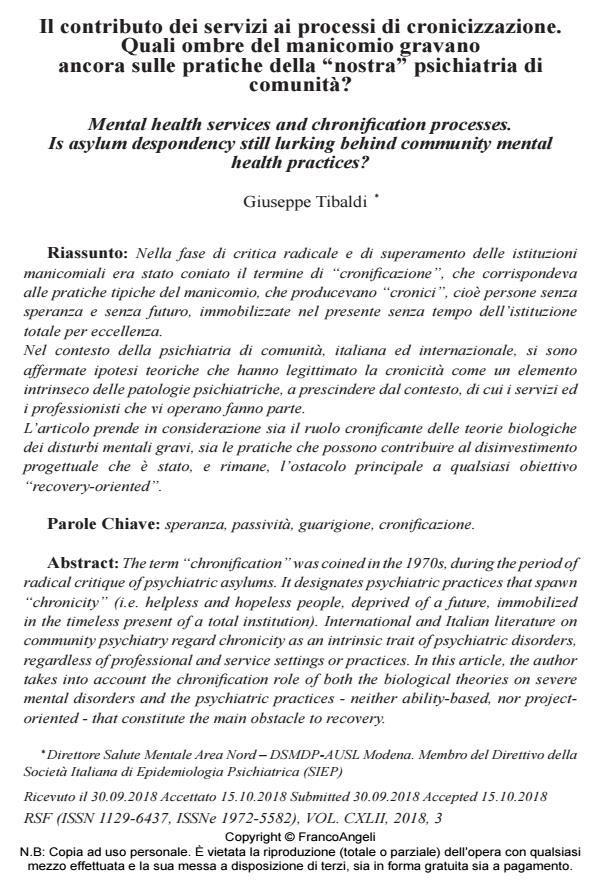Mental health services and chronification processes. Is asylum despondency still lurking behind community mental health practices?
Journal title RIVISTA SPERIMENTALE DI FRENIATRIA
Author/s Giuseppe Tibaldi
Publishing Year 2018 Issue 2018/3
Language Italian Pages 9 P. 9-17 File size 1829 KB
DOI 10.3280/RSF2018-003002
DOI is like a bar code for intellectual property: to have more infomation
click here
Below, you can see the article first page
If you want to buy this article in PDF format, you can do it, following the instructions to buy download credits

FrancoAngeli is member of Publishers International Linking Association, Inc (PILA), a not-for-profit association which run the CrossRef service enabling links to and from online scholarly content.
The term "chronification" was coined in the 1970s, during the period of radical critique of psychiatric asylums. It designates psychiatric practices that spawn "chronicity" (i.e. helpless and hopeless people, deprived of a future, immobilized in the timeless present of a total institution). International and Italian literature on community psychiatry regard chronicity as an intrinsic trait of psychiatric disorders, regardless of professional and service settings or practices. In this article, the author takes into account the chronification role of both the biological theories on severe mental disorders and the psychiatric practices - neither ability-based, nor projectoriented - that constitute the main obstacle to recovery.
Keywords: Hope, passiveness, recovery, chronification.
Giuseppe Tibaldi, Il contributo dei servizi ai processi di cronicizzazione. Quali ombre del manicomio gravano ancora sulle pratiche della "nostra" psichiatria di comunità? in "RIVISTA SPERIMENTALE DI FRENIATRIA" 3/2018, pp 9-17, DOI: 10.3280/RSF2018-003002